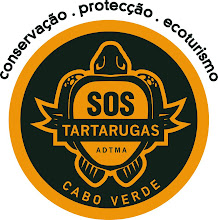SOS TARTARUGAS RESEARCH
GUIDELINES 2012
In order to understand the objectives of
the project please read the information on our website and blog. For your thesis or research to be
accepted your proposal should indicate the benefit to the project & turtle conservation in Cape Verde.
Please note that you must first be
accepted as a Ranger by completing the application process and that duties as a
Ranger takes priority over research projects. This means that a research project will mean a great deal of
additional work. Please bear this
in mind when writing your proposal.
General Guidleines
- No unnecessary pain or stress caused to the turtles.
- A complete proposal must be produced before the research begins. This should include a written document stating the aims, methods, equipment required, costs and benefits.
- Your research proposal and methodology must be approved by the project co-ordinator/director before you begin.
- You must ensure other members of the SOS Tartarugas team understand your project/research Although members of the team may be able to assist with data collection or other aspects, this cannot be guaranteed. You are entirely responsible for the fieldwork. Involvement of other people must be approved by the project coordinator. If other members of the team help you with your research it is your responsibility to train them.
- You are required to give updates periodically to ensure other team members are aware of preliminary results or changes to protocols.
- Equipment in Cape Verde is limited and basic, if you need any specialist equipment you will need to bring it with you. However, before you buy anything, ask first, it may already be available.
- SOS Tartarugas will not contribute funding to your study unless agreed in advance.
- Data remains the property of SOS Tartarugas and can only be used during your time in the project. Any copies of the data (electronic or printed) must be returned before you leave unless you have obtained specific approval. Use of the data for any other purpose is not permitted.
Ongoing studies include:
1. Light pollution
The effects of light pollution on relocation
strategies and misorientation of Loggerhead hatchlings.
Influence of moonlight on Loggerhead hatchlings
misorientation.
2. Influence of moon phase and tide in nesting
behavior in Loggerhead turtles.
3. Physical and chemical factors affecting hatching
success in loggerhead turtles and their importance in relocation
strategies.
4. Predation
Impact of ghost crab predation in Loggerhead turtles.
5. Sex determination
Analysis of data from temperature loggers
6. Relative hatching success
Hatchery vs in situ vs trans situ
7. Impact of climate change
Impact of climate change on incubation and study on
mitigation factors (shading, sprinklers, etc).
8. Inwater study
Analysis of turtle sightings made by fishermen and
leisure boats.





No comments:
Post a Comment